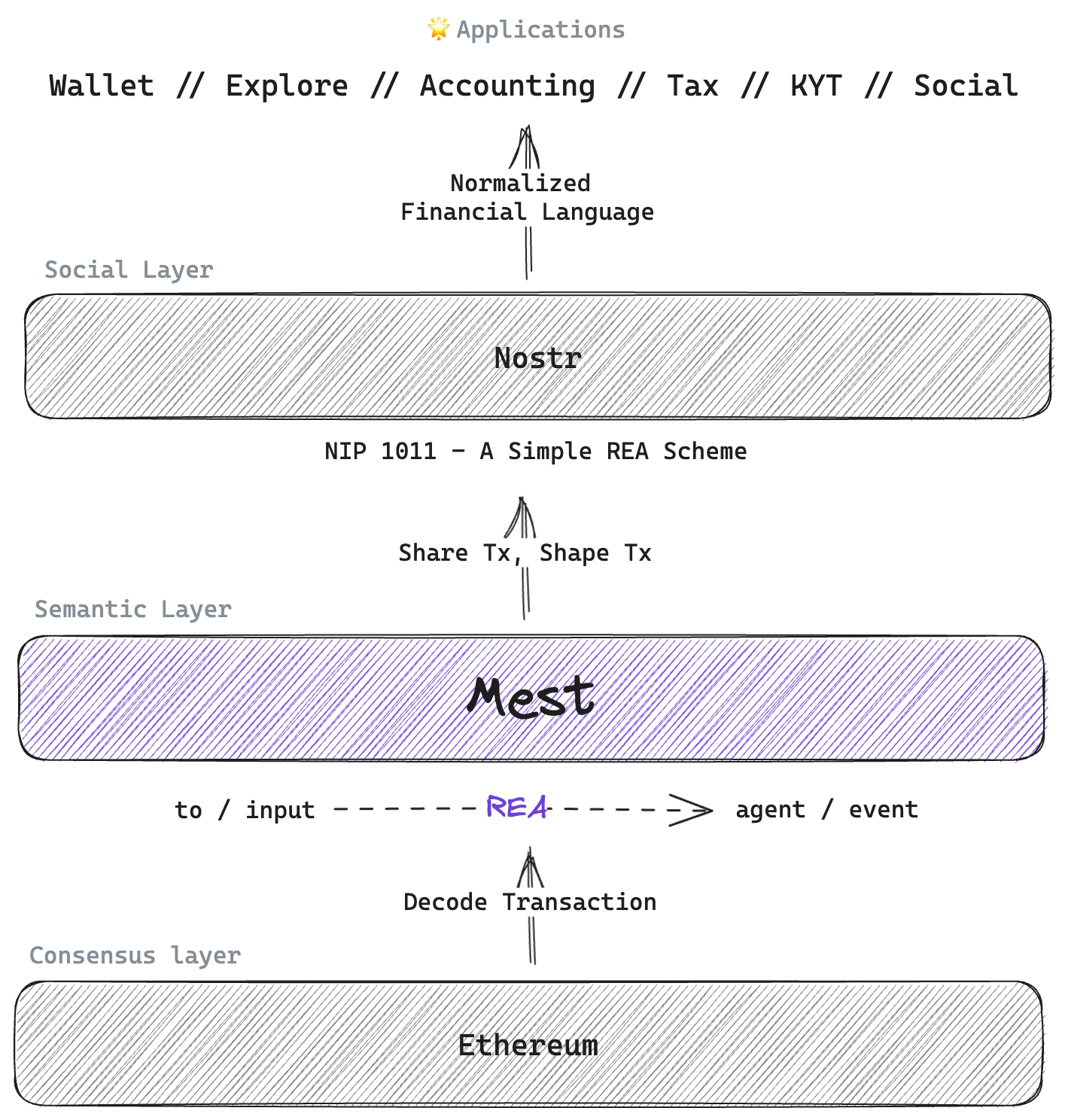👋What is Mest?
Shape transactions, shape us.
Mest is a simple and open platform for sharing blockchain transactions.
Here, users can share interesting transactions and wallet collections, as well as label each transaction with its purpose and context. The contributions from community members will become part of the public good, benefiting the community and individuals alike. We hope that Mest will become a hub on the blockchain, not only for sharing and creating valuable content but also for collectively refining the map of the blockchain world.
Mest Overview
Mest is fundamentally based on two core technologies: Ethereum and Nostr. Anyone can parse and label transactions because one can freely obtain transaction data from Ethereum Nodes and send label data to Nostr Relays. Mest is primarily concerned with one thing: how to map raw transaction data to a standardized financial language, essentially mapping the to and input of a transaction to agent and event that meet the REA requirements.
The process is straightforward. Anyone can send label data that complies with the NIP1011 specification to a decentralized social protocol using a pair of public and private keys. There's no need for complex and cumbersome decentralized governance rules, and even voting, reputation, and economic incentives are not necessary, though we could choose to implement them through NIP25, NIP58, and NIP57.

Use Cases
Products
Frequently Asked Questions
What does Mest mean?
Mest = Metadata + Story
Mest is derived from a combination of two words: Metadata, which means data about data and can also be understood as data from the metaverse; and Story, which indicates the aspiration to transform these abstract on-chain data into narratives with more compelling storytelling and emotional connections.
Is Mest a public good?
Mest itself is not a public good, but the transaction metadata produced through Mest are public goods. Similar to how free photos on Unsplash are public goods, Unsplash remains a commercial entity that generates revenue through partnerships, advertising, and other means. Additionally, Mest plans to create labelling tools in Q4 2023 and to open access to the labelling data in Q1 2024.
How will Mest deal with competition?
If Mest makes all transaction metadata public and someone copies it 1:1 and does it better, what then? That would be a good thing. If there is a better version of Mest, we would choose to join rather than waste resources.
Why is Mest by invitation only?
Mest operates on an invitation-only basis because it's still in the early stages of development. This approach enables the team to form a close-knit feedback loop with a core group of users, which is vital for refining features and ensuring the platform meets actual user demands. The aim is to address any potential uncertainties and polish the product's performance before it's released to a wider audience, guaranteeing stability and a quality user experience upon full launch.
Last updated
Was this helpful?
